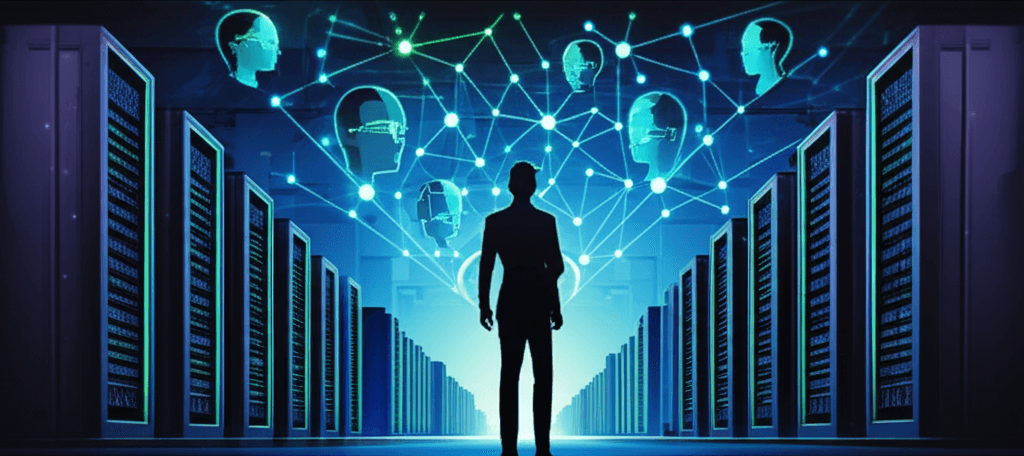Zuckerberg Unveils $70 Billion AI Bet on Personal Superintelligence
Zuckerberg commits $70 billion to embed personal superintelligence into daily life through smart devices, empowering individuals.
July 31, 2025

In a significant declaration of intent, Meta CEO Mark Zuckerberg has unveiled a new guiding philosophy for his company's artificial intelligence efforts, focusing on the creation of "personal superintelligence" to empower individuals. This vision, detailed in a public memo, positions AI as a tool for personal growth, creativity, and connection, directly contrasting with what Zuckerberg frames as a competing industry focus on centralized automation. To realize this ambitious goal, Meta is committing to a massive spending campaign, with projected capital expenditures on AI infrastructure set to reach $66 billion to $72 billion in 2025 alone, signaling a profound strategic pivot backed by immense financial resources.
The core of Zuckerberg's new doctrine is the idea of providing every individual with a powerful AI that understands their personal context and goals.[1][2] This AI would function as an assistant to help people achieve personal and professional aims, create content, and deepen relationships.[3][4] In his manifesto, Zuckerberg distinguishes this approach from a future where superintelligence automates most valuable work and humans subsist on the output, arguing instead for a model that enhances human agency.[5][4] A critical component of this vision is the integration of AI into personal devices like smart glasses.[2] Zuckerberg foresees these devices becoming the primary computing platform, capable of understanding a user's environment by seeing what they see and hearing what they hear, thereby providing deeply contextual AI assistance.[1][6] This strategy leverages Meta's recent successes, such as the 200% sales jump for its AI-powered Ray-Ban glasses in the first half of 2025.[2]
Fueling this long-term vision is a torrent of capital spending, positioning Meta at the forefront of the global AI infrastructure race.[7][8] The projected capital expenditure for 2025 represents an approximate $30 billion increase over the prior year, with spending expected to ramp up even further in 2026.[9][10][11] This investment is dedicated to building out a vast network of AI-specific data centers and servers.[9] The company has announced plans for massive AI "titan clusters," including "Prometheus" in Ohio and "Hyperion" in Louisiana, which are designed to provide the gigawatt-scale computing power necessary to train and operate next-generation AI models.[9][12] This financial commitment is made possible by the formidable performance of Meta's core advertising business, which posted revenues of $46.5 billion in the second quarter, bolstered by the increasing efficiency of its own AI-driven ad tools.[5][13][14] The strong financial results have been met with investor confidence, leading to a surge in the company's stock price.[9][15][16]
However, the push towards superintelligence introduces new complexities for Meta's historically open-source AI strategy. The company built significant goodwill in the developer community by releasing powerful Llama models openly, a move that differentiated it from more secretive rivals like OpenAI and Google.[17][18] Now, Zuckerberg has indicated that as Meta approaches true superintelligence, novel safety and security concerns will require the company to be more "careful about what we choose to open source."[5][19] This has been interpreted as a potential shift away from a fully open approach for its most advanced, frontier models.[17][20] While Zuckerberg has asserted that Meta will continue to produce and share leading open-source models, the new, more guarded tone suggests a hybrid strategy is emerging, where foundational models may remain public while the most powerful systems are kept proprietary to mitigate risks and maintain a competitive edge.[19][20]
In laying out his manifesto, Zuckerberg is not just outlining a product roadmap; he is making a philosophical bet on the future relationship between humans and artificial intelligence. By committing tens of billions of dollars, fueled by a dominant advertising engine, Meta is aggressively positioning itself to define that future on its own terms. The strategy is audacious, wedding a high-minded vision of personal empowerment with the brute-force reality of building a global infrastructure to support it. The outcome of this endeavor will have profound implications, not only for Meta's competitive standing against its tech rivals but for the direction of the entire AI industry and how advanced artificial intelligence is ultimately integrated into the fabric of daily life.
Sources
[1]
[2]
[3]
[4]
[11]
[12]
[13]
[14]
[15]
[16]
[17]
[18]
[19]
[20]